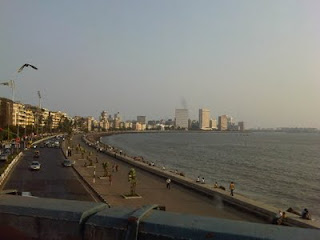 | |
| A brand like a football club is built from the ground up |
When we turn 7 years old a few years back, my partner and I decided we need to have some semblance of future industries our legal firm should look at and break into. We choose two industries which branched out from law. One is Islamic finance, hence why I was in the the first part-time class of Certified Islamic Finance Professional in the International Center for Education for Islamic Finance in 2007. The other branch of law which we concentrate on is Intellectual Property. Which was why my partner took an LL.M course in Universiti Malaya in which one of the subject she specialised on was intellectual property. Needless to say, as both of us had graduated, I am the Islamic finance expert and she is the intellectual property expert in our firm.
Why do we think intellectual property is important? It is quite an impossible task to explain as Malaysia is so well-known to flout the intellectual property of movies and music that the movie studios in Hollywood realised they can't fight the intellectual property pirates and changed the way movies and music are released here. Yes, that is why we usually get movie premiere so early that the rest of the world is still waiting for the movie reel to arrive at their movie theaters. Intellectual property in Malaysia also suffers from the uncaring attitude of brand owners. Not many think spending some money to protect their brand is worthwhile. Some only do it when they get to know their intellectual property rights were infringed.
 |
| A car brand has the most things to protect in term of intellectual property |
There are a lot of arguments about intellectual property is actually making life harder for those who produced certain products but didn't become part of the system like commodities-growers. However, if you want to break other markets, you cannot expect the same rules apply to you in any other country. We either adapt to it or you will be left behind. Registering you intellectual property in advance can even actually help small business prosper and even take down giants of intellectual property like what happened to McDonald twice in Asia.
 |
| A camera brand well-known in history |
The story of McDonald losing the name of McCafe in Singapore in a landmark case and the name of McCurry in Malaysia is well-known. Nowadays, you can see the name McCafe being used in most of McDonald's spin-off cafe within McDonald's stores worldwide. However, it was once owned by an unknown brand owner in Singapore.
 |
| A film studio which churn out movies and have a theme park is another |
Looking back into Malaysia, it is important to point out that the Malaysian authority in registering the intellectual property in Malaysia has made things easy to register a brand. They are also quite helpful in doing so. Just check how easy for you to register a brand and to protect it at MyIPO website. And of course, my legal firm do offer intellectual property registration and protection. We have the team to help you register while you will be given the protection if your intellectual property rights ever being infringed.
Of course, Malaysians, either as individual or as a corporate entity are breaking new grounds as we are known to produce artistes of varying degrees outside of Malaysia. I have found friends asking about who owns their work if they get paid for doing it and I have found those being sued for not knowing that they have infringed some intellectual property rights. I think education on IP is one missing link in Malaysia's attempt to be an intellectual property powerhouse. Maybe being one of the well-known 'pirates' country does not help our cause...












